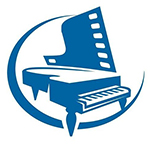Last week’s post covered the financial and student retention issues involved with an enhanced summer program. This week I’d like to explore the many options you can consider for your studio! Let’s look at a few:
1. Summer Camps–generally, a piano camp can last 1.5 to 2 hours per day. Parents are often encouraged when you offer something after 4 PM so students in summer day care or camp can participate. Also camps that run in early August are often well attended since most other summer camps have ended and students become bored. Ideas for a camp theme can include, ensemble, theory or composition. In a three year period, I offered each of these options. A different option each summer kept my camps fresh. I had two back to back camps, 4 to 5:30 pm and 6 to 7:30 pm enrolled according to age/ability level. If you are combining camps with private lessons, you can offer a combo or say 3 lessons and 1 camp. If you are requiring a certain number of summer lessons, you can reduce the lesson number for camp enrollees.
2. Repertoire that is lighter–popular, jazz, or other genres you don’t have time to explore during the school year.
3. Repertoire for the coming fall. I consider July 1st the start of my “new school year” since I run a year around program. This is my students’ golden time to get a head start on a piece or two of the repertoire required for festivals and competitions, etc.
4. Technique Kick-up: Late spring (when the school year activities and festivals are completed) and the summer months are golden! Add the next level of technical skills to you have the time to your program NOW while you have the luxury of teaching these concepts thoroughly without the pressure of other activities and festivals crowd the schedule.
5. What’s New? Consider what skill, activity or curriculum you just haven’t put into your teaching. Sight reading, theory (or a new approach to it), duets/ensemble are just a few examples of what you can incorporate in your program. Summer is the best time to start something new. When the students return in the fall for regular weekly lessons, it can become difficult to start everything all at once. It is much easier to manage when the background work has been done in the previous months.
All of these ideas give purpose to summer lessons and can give structure and added value to your program. Begin planning now for your specific approach to the summer months ahead. They will be here before you know it!
Musically yours,
Carol Ann Barry
